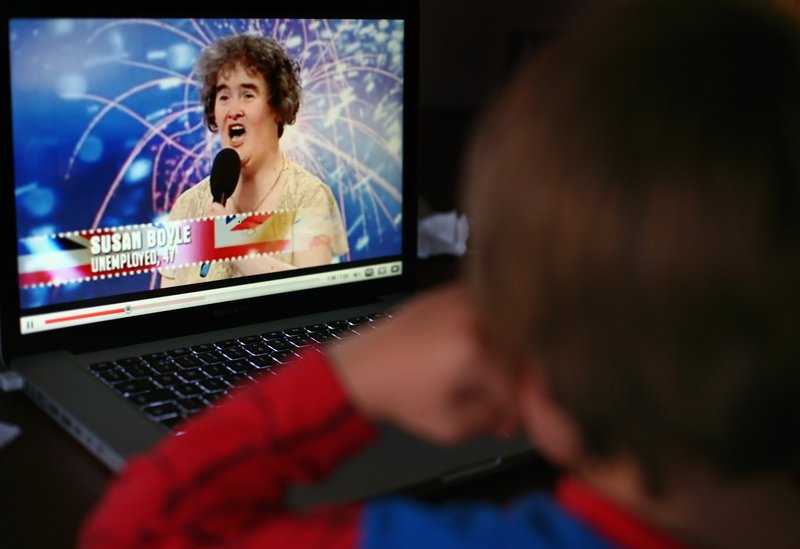我的工作是保护儿童隐私,我为什么鄙视谷歌

|
在童年时代,我们中的很多人放学后和周六的上午都会看动画片。现在的孩子却随时随地都能看YouTube。而且YouTube不只有动画片,还有电影、儿歌以及其他孩子玩玩具的视频。目前在6到12岁的美国儿童中,有80%的人每天都会看YouTube。YouTube上的很多热门频道,如莱恩玩具评测(Ryan Toys Review)、啾啾电视儿歌童谣(ChuChu TV Nursery Rhymes & Kids Songs)等,都是以儿童为目标群体的。 美国的《儿童在线隐私保护法案》(COPPA)规定,儿童网站或是明知其网站正在收集儿童信息的网站经营者,需先告知儿童家长他们的数据收集行为,并征得其家长的同意。那么谷歌又采取了哪些做法确保YouTube符合《儿童在线隐私保护法案》的规定呢?谷歌表示,它不需要遵守该法案,因为“YouTube并不是儿童网站。” YouTube上有这么多直接瞄准儿童的内容,谷歌却做出如此不负责任的表态,着实不可理喻。一方面,谷歌的隐私政策写得十分复杂,差不多只有法律专业的毕业生才能完全看懂,另一方面,谷歌却把YouTube的界面设计得异常简单,就连6岁的孩子也能轻易地在上面买东西,或是看任何他想看的内容。 本周,我所在的“让童年远离商业活动”组织联合了其他22家消费者组织,向联邦贸易委员会递交了一份详细的投诉书,要求其就谷歌未能保护使用YouTube的儿童隐私事发起调查。我们严肃指出,谷歌的儿童隐私保护做得如“狗屎”一般。 剑桥分析公司获取数百万脸书用户数据一事,已经将美国人从“科技就是娱乐”的迷梦中惊醒。这件事也让人们意识到,天下没有免费的午餐,所谓的“免费”应用和社交媒体平台,其实是需要你付出高额代价的,至少你在一个庞大模糊的营销网络面前,已经毫无隐私可言。不信你就问问你们的亚马逊Echo语音助手:“给我放一首汉密尔顿的歌,顺便告诉我,你知道我过去五年里都去过哪些地方吗?” 我们的社会亟需一场关于如何监管科技公司以保护个人隐私的大讨论。在这场大讨论中,首当其冲也是最重要的议题便是如何保护儿童的隐私。儿童在这方面是尤为脆弱的,而总有一天他们也会成为政治上的成年人。 为何儿童的隐私特别需要保护?因为贪婪的市场营销者正是看中了他们心智的不成熟。儿童不理解广告的说服意图,所以他们根本抵御不了广告的诱惑,他们在童年形成的品牌偏好或将影响他们的一生。营销人员也知道儿童会缠着父母买东西,而父母最终会投降的——这是人的天性,并非父母的失败。为了瞄准利润极丰的儿童市场,企业会无所不用其极地收集儿童的偏好信息、上网习惯和观看记录。具有联网功能的玩具和设备也是他们用来收集儿童隐私的工具。 那么,家长应该怎样做才能保护孩子的隐私呢?首先,《儿童在线隐私保护法案》应赋予家长监控孩子互联网使用情况的权利,以避免他们的数据被收集和分享。在YouTube的问题上,各方需要做的也有很多。 谷歌会收集YouTube用户的地理位置、观看记录和浏览记录等数据,然后基于这些数据做广告的精确推广。用户必须年满13岁才能注册YouTube的账户,但是看视频是不需要账户的,所以这个网站每天都会收集几百万儿童的数据。虽然谷歌不知道这些孩子的具体年龄,但通过观看习惯等指标,却也不难确定。这些数据和分析是最令市场营销人员垂涎的。所以谷歌通过看YouTube视频的儿童赚了一大笔钱,但它却根本不理会一项旨在保护儿童网络隐私的简单规定。 随着人们网络隐私风险意识的提高,我们希望美国联邦贸易委员会能迅速对YouTube发起调查,使其遵守《儿童在线隐私保护法案》的规定。对于我们的投诉,谷歌耍了一招太极,先是继续指出YouTube并非一家儿童网站,又说它已经推出了专门针对儿童的YouTube Kids应用,在这个应用上,家长已经可以选择稳私保护选项了。然而大多数儿童都没有听说过YouTube Kids,他们使用的还是YouTube的应用或主网站,他们的隐私仍然没有得到保护。谷歌明知这一点,却仍对侵害儿童福祉的行为视而不见。(财富中文网) 本文作者David Monahan是“让童年远离商业活动”的活动经理。 译者:朴成奎 |
Growing up, many of us watched cartoons after school and on Saturday mornings. Today, kids have YouTube—anytime they want. And it’s not just cartoons: It’s also movies, nursery rhymes, and videos of other kids opening toys. About 80% of children aged 6 to 12 watch YouTube every day, and many of YouTube’s most popular channels, like Ryan Toys Review and ChuChu TV Nursery Rhymes & Kids Songs, are aimed at kids. The Children’s Online Privacy Protection Act (COPPA) requires the operator of a site directed at children or with knowledge that its site is collecting information from children to first give parents notice of its data collection practices and obtain their consent. What does Google do to ensure that YouTube complies with COPPA? Google says that it doesn’t need to comply, because “YouTube is not for children.” Considering the mounds of kid-directed content it offers, the assertion is absurd—as absurd as posting privacy policies that require a law degree to understand, while designing interfaces simple enough for a 6 year old when it comes to buying things or binge-watching. My organization, Campaign for a Commercial-Free Childhood, is part of a coalition of 23 consumer groups that filed a detailed complaint this week asking the Federal Trade Commission to investigate the failure of Google to protect the privacy of children using YouTube. In 2018 parlance, we called “BS” on Google. The news of Cambridge Analytica accessing data of millions of Facebook users has awakened the U.S. out of its happy “tech is fun” slumber, and helped people grasp that “free” apps and social media platforms come at a very high price—loss of our privacy to a vast, opaque network built on marketing. I bet a few people have recently asked their Amazon Echos: “Alexa, play the Hamilton soundtrack, and also, tell me what you know about where I’ve traveled in the past five years.” The conversation about regulating tech companies to protect our privacy is long overdue. Front and center in that dialogue should be the needs of children, who are both particularly vulnerable and who will one day be engaged, political adults. Kids need protection for the same reasons greedy marketers target them. Young children don’t understand the persuasive intent of advertising, so they don’t stand a chance at resisting it, and they’re forming brand preferences now that may last a lifetime. Marketers also know kids will pester parents to buy things, and that parents will give in—this is human nature, not parental failure. In order to target the extremely lucrative child market, companies vacuum up information on children’s preferences and browsing and viewing habits on websites and through Internet-connected toys and devices. What can parents do to protect their children? Well, COPPA is supposed to empower parents to monitor children’s Internet and device use, and prevent their information from being collected and shared. And on YouTube, there is much to protect them from. Google collects data like location, viewing, and browsing habits of YouTube users, then employs it to target ads to them. Signing up for a YouTube account requires you be 13, but you don’t need an account to watch videos, so the site collects data from millions of kids every day. Without asking their age, Google is able, through other indicators based on viewing habits, to identify this data as the extra-profitable kid stuff, which marketers most covet. So Google makes a fortune off of kids watching YouTube, and won’t even meet the simple requirements of the one law meant to protect kids online. With the new enlightenment about Internet privacy risks, we’re hopeful the FTC will swiftly investigate YouTube and require it to comply with COPPA. Though in response to our complaint, Google doubled down on the deceit. The company continues to insist YouTube is not for children, and points to its YouTube Kids app, which has children’s privacy protections as an alternative. But the majority of children are not on YouTube Kids—they’re on the main YouTube site or app, unprotected. Google knows it, no matter what it says to justify turning a blind eye to children’s wellbeing. David Monahan is campaign manager at Campaign for a Commercial-Free Childhood. |













